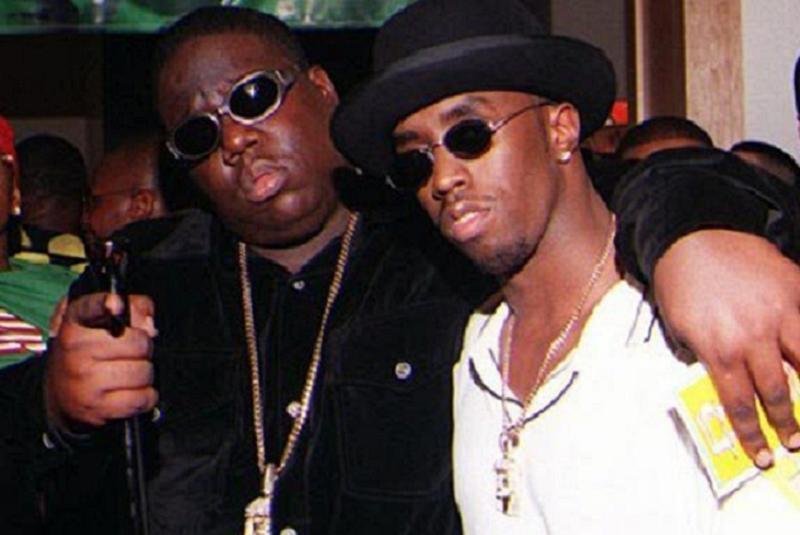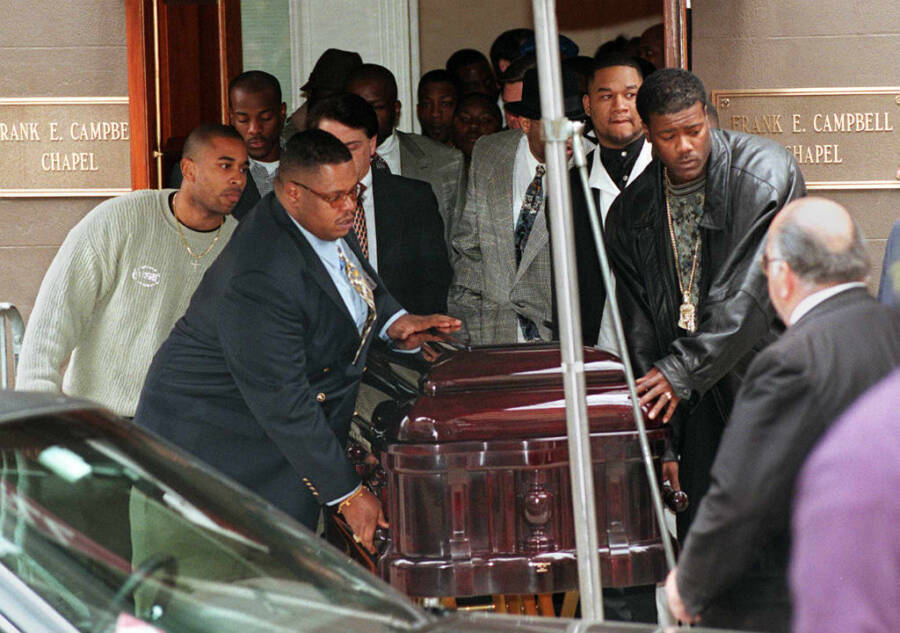On March 9, 1997, the world lost one of its most iconic figures in hip-hop, The Notorious B.I.G., also known as Biggie Smalls. His death remains one of the most infamous unsolved murders in music history, leaving behind a legacy that continues to inspire and intrigue fans worldwide. Today, we’ll take a closer look at the events surrounding his death, the theories swirling around it, and the impact he left on the music industry.
Biggie’s untimely demise was a shockwave that rippled through the rap world and beyond. At just 24 years old, he was already making waves with his unique lyrical style and storytelling ability. But the circumstances of his death have kept the conversation alive for decades. Many questions remain unanswered, and the mystery continues to fascinate both fans and investigators alike.
In this article, we’ll explore everything you need to know about the notorious Biggie death, from the timeline of events to the theories that have been floating around for years. We’ll also touch on his life, legacy, and the impact his music continues to have on new generations. Let’s dive in.
Read also:Sean Patrick Flanery A Look Into The Life And Iconic Images
Table of Contents
- Biggie's Biography
- The Timeline of Events
- Unpacking the Theories
- Gangster Rivalry: East vs. West
- The Police Investigation
- Conspiracy Theories Galore
- Media’s Role in the Notorious Biggie Death
- Biggie’s Legacy Lives On
- The Impact on Hip-Hop
- Final Thoughts
Biggie's Biography
Early Life and Rise to Fame
Christopher George Latore Wallace, better known as The Notorious B.I.G., was born on May 21, 1972, in Brooklyn, New York. Growing up in the rough streets of Bedford-Stuyvesant, Biggie experienced firsthand the struggles of urban life. His early years were marked by poverty and crime, but he always had a knack for words.
By the early 1990s, Biggie had already built a reputation as one of the most talented lyricists in the underground rap scene. His big break came when he was discovered by Sean “Puffy” Combs, who signed him to his label, Bad Boy Records. With hits like “Juicy” and “Big Poppa,” Biggie quickly rose to fame, becoming a household name in the hip-hop world.
Here’s a quick glance at some key facts about Biggie:
| Full Name | Christopher George Latore Wallace |
|---|---|
| Born | May 21, 1972, Brooklyn, NY |
| Died | March 9, 1997, Los Angeles, CA |
| Alias | The Notorious B.I.G., Biggie Smalls |
| Label | Bad Boy Records |
The Timeline of Events
On the night of March 9, 1997, Biggie attended a music industry event called the Soul Train Music Awards in Los Angeles. After the event, he was driven to a private party hosted by Vibe magazine. Around 12:45 AM, Biggie left the party and was sitting in the passenger seat of an SUV when a black Intruder drove up alongside them and opened fire.
Biggie was hit multiple times and rushed to a nearby hospital, where he was pronounced dead. The driver and bodyguard managed to escape unharmed, but the scene was chaotic, and many details were lost in the confusion. To this day, the case remains unsolved, with numerous theories surrounding the motive and identity of the shooter.
Unpacking the Theories
East Coast vs. West Coast Rivalry
One of the most popular theories about Biggie’s death is that it was tied to the infamous East Coast-West Coast hip-hop rivalry. At the time, Biggie and Tupac Shakur were embroiled in a bitter feud that played out in their lyrics and public statements. Some believe that Pac’s associates were responsible for Biggie’s murder as retaliation for his alleged involvement in Pac’s 1994 shooting.
Read also:Mcvoice Survey The Ultimate Guide To Boosting Your Voice In Marketing
- Tupac was killed six months earlier in a similar drive-by shooting in Las Vegas.
- Both murders remain unsolved, fueling speculation about a larger conspiracy.
Gangster Rivalry: East vs. West
Another theory suggests that Biggie’s death was the result of gang warfare between the Bloods and the Crips. Biggie was reportedly affiliated with the Bloods, while Pac was linked to the Crips. The rivalry between these two gangs may have escalated to the point of violence, with Biggie becoming a target.
While this theory has some merit, it’s also been criticized for oversimplifying the complex dynamics of the hip-hop industry at the time. The rivalry between East Coast and West Coast artists was more than just a gang feud—it was a clash of egos, business interests, and cultural differences.
The Police Investigation
Following Biggie’s death, the LAPD launched a massive investigation, but the case quickly hit a dead end. Over the years, several leads have emerged, including allegations of police corruption and involvement from high-profile figures in the music industry. Despite numerous attempts to solve the case, no arrests have been made.
Some critics argue that the investigation was mishandled from the start, with key evidence lost or ignored. Others point to the lack of resources and manpower dedicated to solving the case, given the high-profile nature of the victim.
Conspiracy Theories Galore
Over the years, countless conspiracy theories have emerged about Biggie’s death. Some suggest that his murder was orchestrated by the FBI or other government agencies as part of a larger effort to silence influential voices in the hip-hop community. Others believe that Biggie faked his own death and is living in hiding.
- One theory claims that Biggie’s death was staged to cover up his involvement in drug trafficking.
- Another suggests that the shooter was acting on behalf of a rival record label.
While these theories are often dismissed as wild speculation, they continue to fuel public interest in the case.
Media’s Role in the Notorious Biggie Death
The media played a significant role in shaping public perception of Biggie’s death. From the moment the news broke, journalists and commentators were quick to draw connections between Biggie’s murder and the ongoing feud with Tupac. This narrative dominated headlines for months, overshadowing other potential leads and motives.
Some critics argue that the media’s focus on the East Coast-West Coast rivalry may have inadvertently hindered the investigation by steering law enforcement in the wrong direction. Others believe that the media’s coverage helped keep the case in the public eye, increasing pressure on authorities to solve it.
Biggie’s Legacy Lives On
Despite his untimely death, Biggie’s influence on hip-hop culture remains as strong as ever. His music continues to inspire new generations of artists, and his larger-than-life persona has become a symbol of resilience and creativity. In recent years, there have been renewed efforts to honor his legacy, including documentaries, biopics, and tribute albums.
Biggie’s posthumous album, “Life After Death,” became one of the best-selling rap albums of all time, further cementing his status as a legend in the music industry. His impact extends beyond music, as he’s often cited as a role model for aspiring artists and entrepreneurs.
The Impact on Hip-Hop
The notorious Biggie death had a profound impact on the hip-hop community, sparking debates about violence, censorship, and the responsibilities of artists in shaping public discourse. Many rappers have spoken out about the need to address these issues and work towards a more peaceful and collaborative industry.
Biggie’s death also highlighted the dangers faced by artists who become entangled in real-world conflicts. While his music often celebrated the lifestyle of the streets, his personal experiences showed the darker side of that world. This duality continues to resonate with fans and critics alike.
Final Thoughts
The death of The Notorious B.I.G. remains one of the most tragic and mysterious events in music history. While the case remains unsolved, his legacy continues to inspire and captivate audiences around the world. From his early days in Brooklyn to his rise as a global superstar, Biggie’s story is a testament to the power of music to transcend boundaries and bring people together.
As we reflect on his life and career, it’s important to remember the lessons he taught us about perseverance, authenticity, and the importance of staying true to oneself. If you enjoyed this article, feel free to leave a comment or share it with your friends. And don’t forget to check out some of our other articles on the history and culture of hip-hop!


